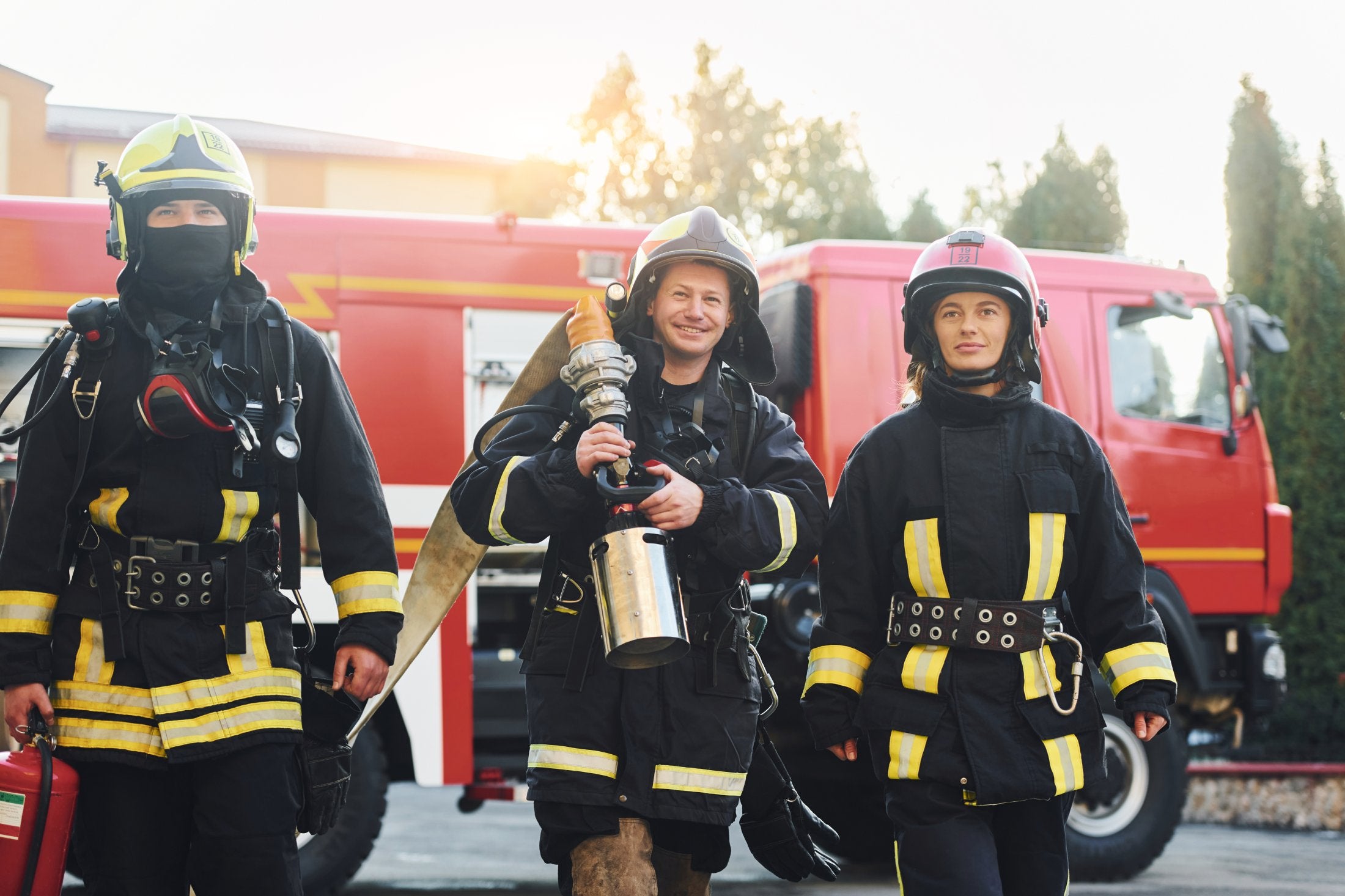You have no items in your shopping basket.
Dr Richard Dune
21-08-2023
Importance of fire safety training in health and social care
Image by marcopacello68 via Envato Elements
Fire safety training in health and social care is vital for protecting patients, staff, and visitors, ensuring safety, and reducing risks during emergencies
Fire safety is a paramount concern in every sector, but it takes on an added layer of significance in health and social care organisations. Due to the vulnerability of service users and the unique operational environment of care settings, stringent fire safety protocols are critical.
The UK recognises this need and has established regulations across its constituent countries: England, Wales, Scotland, and Northern Ireland. The guidance of health and social care regulators, such as the Care Quality Commission (CQC), Health Inspectorates, and the Regulation and Quality Improvement Authority (RQIA), further underscores this importance.
In this blog, Dr Richard Dune discusses the importance of fire safety awareness training in health and social care settings across the UK.
Legislation and regulations across the UK
Understanding the legislative landscape is crucial to appreciate the emphasis placed on fire safety. Each UK country has its regulations:
- England - The Regulatory Reform (Fire Safety) Order 2005 is the primary legislation concerning fire safety. It mandates risk assessments and demands that fire safety measures are implemented to protect those using or working on-premises.
- Wales - The Fire Safety (Wales) Regulations 2003 are similar to those of England and are designed to ensure the welfare of those inside a facility.
- Scotland - The Fire (Scotland) Act 2005, coupled with the Fire Safety (Scotland) Regulations 2006, outlines the duties and powers related to fire safety, emphasising protection against fire risks.
- Northern Ireland - The Fire and Rescue Services (Northern Ireland) Order 2006 and the Fire Safety Regulations (Northern Ireland) 2010 establish fire safety requirements. These are comparable to England and Wales, focusing on risk assessments and safety measures.
Guidance from health and social care regulators
These legislative tools are augmented by guidance from various health and social care regulatory bodies:
- The Care Quality Commission (CQC) in England sets standards for safety and quality, including fire safety. They ensure providers meet safety regulations and highlight the importance of regular staff training.
- The respective Health Inspectorates in Wales and Scotland have similar mandates, ensuring service providers have adequate fire safety protocols in line with national standards.
- In Northern Ireland, the Regulation and Quality Improvement Authority (RQIA) oversees health and social care settings, emphasising the need for appropriate safety measures and training.
Consequences of non-compliance
Failure to comply with the above laws and regulatory guidance can have severe consequences. Beyond the obvious risk to life and property, non-compliance can result in:
- Legal repercussions - Organisations can face hefty fines, legal costs, and in severe cases, imprisonment for responsible persons.
- Regulatory penalties - Providers might be prohibited from operating or face suspension.
- Reputational damage - The trust of service users and their families can be irreparably harmed, leading to reduced clientele and business loss.
- Increased insurance premiums - Failure to adhere to fire safety protocols can lead to higher insurance costs.
Vital elements of fire safety training
For health and social care organisations to be compliant and, most importantly, safe, their fire safety training should encompass the details below.
Aims
- To equip staff with the knowledge to prevent fires.
- To ensure a swift, safe response in the event of a fire.
Intended learning outcomes
- Understand the principles of combustion and fire spread.
- Recognise common fire hazards in care settings.
- Demonstrate correct use of fire safety equipment.
- Understand and execute evacuation procedures, especially for immobile service users.
- Implement regular fire safety checks and drills.
- Recognise the importance of clear communication during emergencies.
Conclusion
Fire safety training in health and social care organisations in the UK isn't merely a bureaucratic requirement - it's a moral and ethical one. Given the vulnerable nature of service users, it's incumbent upon these organisations to ensure that every possible measure is in place to prevent fires and respond effectively if one does occur.
Complying with legislation and regulatory guidance safeguards lives and the reputation and operational longevity of the care organisation. Hence, regular, comprehensive fire safety training, adhering to the key elements outlined, is not just essential—it's indispensable.
Click here to see our wide range of accredited fire safety courses and training programmes.
Enhancing fire safety training in health and social care with ComplyPlus™ - A streamlined compliance solution
Ensuring that health and social care staff receive comprehensive fire safety training is essential for protecting patients, staff, and visitors. In high-risk environments, proper fire safety knowledge can prevent accidents, reduce risks, and ensure a quick, effective emergency response.
At The Mandatory Training Group, we understand the importance of equipping healthcare professionals with the skills and knowledge to handle fire safety procedures confidently. Our CPD-accredited eLearning courses provide a practical solution for health and social care settings, covering vital fire safety topics and ensuring compliance with regulations.
Through ComplyPlus™, our cutting-edge platform, organisations can streamline fire safety training, track compliance, and maintain continuous learning. ComplyPlus™ helps close knowledge gaps, improve workforce competency, and ensure full compliance with fire safety regulations. Stay up-to-date with the latest fire safety best practices and ensure your team is prepared for emergencies.
Discover why organisations trust us to build skilled and compliant teams – visit our CPD Certification Service Accreditation website to learn more.
Last updated on 08-03-25
About the author
Dr Richard Dune
With over 25 years of experience, Dr Richard Dune has a rich background in the NHS, the private sector, academia, and research settings. His forte lies in clinical R&D, advancing healthcare tech, workforce development, and governance. His leadership ensures that regulatory compliance and innovation align seamlessly.

Related blog articles
View allContact us
Complete the form below to start your ComplyPlusTM trial and transform your regulatory compliance solutions.







